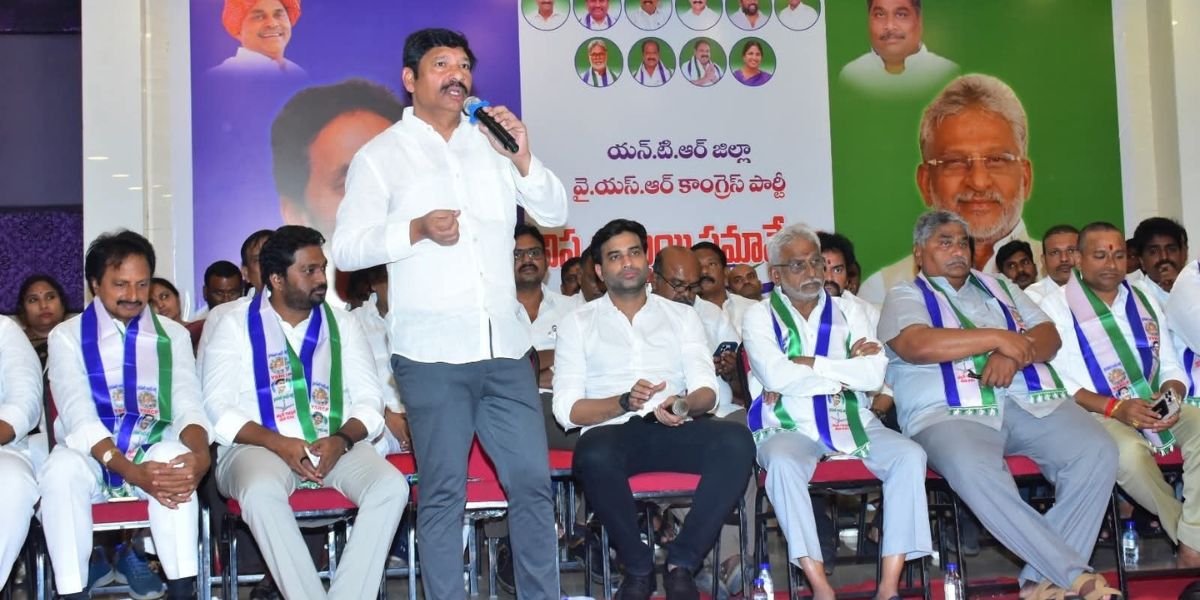Officials say the racket not only posed grave threats to public health but also caused substantial revenue losses to the exchequer.
Published Nov 02, 2025 | 1:21 PM ⚊ Updated Nov 02, 2025 | 1:21 PM

YSRCP leader Jogi Ramesh.
Synopsis: Senior YSRCP leader and former state minister Jogi Ramesh was arrested by the SIT probing Andhra Pradesh’s spurious liquor scandal. The arrest followed startling revelations by the case’s prime accused, who alleged that Ramesh was the “key financier and mastermind” behind the illegal liquor network.
In a dramatic development in the investigation of Andhra Pradesh’s spurious liquor scandal, senior YSRCP leader and former state minister Jogi Ramesh was arrested on Sunday, 2 November, at his residence in Ibrahimpatnam in the NTR district.
The 58-year-old politician — considered a close confidant of YSRCP chief YS Jagan Mohan Reddy — was taken into custody by the Special Investigation Team (SIT) of the Excise Department, marking a major political setback for the Opposition just months after the TDP-led NDA assumed power in the state.
The arrest, carried out around 8 am, followed startling revelations by the case’s prime accused, Addepalli Janardhan Rao (A1), who, in a recent video confession, alleged that Ramesh was the “key financier and mastermind” behind the illegal liquor network.
Rao claimed the racket, which was busted last month in Mulakalacheruvu and Ibrahimpatnam, actually originated in 2023, during Ramesh’s tenure as a minister.
According to sources, Rao told the SIT that Ramesh had promised to invest ₹3 crore to offset losses from the illicit trade and had even discussed extending the network’s reach to African markets. During the early-morning operation, authorities also detained Ramesh’s brother and aide, Arepalli Ramu, who is believed to have managed logistics for the enterprise.
Both men were later shifted to the Excise Department’s regional office in Vijayawada for interrogation.
The case, booked under multiple provisions of the Andhra Pradesh Excise Act and Indian Penal Code (IPC) sections on criminal conspiracy and cheating, has exposed a complex web of corruption that allegedly thrived under political protection. Officials say the racket not only posed grave threats to public health but also caused substantial revenue losses to the exchequer.
The scandal came to light recently, when raids in Chittoor and Krishna districts uncovered more than 10,000 litres of adulterated liquor.
The bust revealed a well-organised production and distribution chain allegedly shielded by local political figures. Both Janardhan Rao and his associate Jaganmohan Rao reportedly confessed to producing toxic liquor with the tacit support of Ramesh.
Facing imminent arrest, Ramesh appeared to have anticipated the move. Just a day earlier, he filed a petition before the Andhra Pradesh High Court, seeking a CBI inquiry into the case. In his affidavit, the YSRCP leader accused the state police of acting under political pressure, calling the investigation “a witch-hunt engineered by the NDA government to stifle dissent”.
He further claimed that Janardhan Rao’s October 15 video confession was coerced and that the entire narrative was being “scripted” to discredit the opposition.
The former minister is expected to be produced before a magistrate later today, where investigators are likely to seek 14-day judicial custody to pursue recovery of assets, documents, and electronic evidence tied to the multi-district operation.
The arrest of Jogi Ramesh — once a strong voice in the Assembly and a key YSRCP strategist — has sent ripples through the state’s political circles. For the ruling coalition, it represents the first major breakthrough in what it calls a “systematic clean-up” of corruption; for the Opposition, it is yet another episode in what they describe as the NDA government’s campaign of selective retribution.
(Edited by Muhammed Fazil.)
